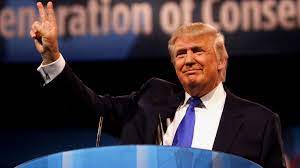The word president evokes images of leadership, power, and responsibility. Whether it’s the head of a democratic nation or a corporation, the president holds a position of great influence. In this article, we’ll explore the multifaceted role of a president, their responsibilities, historical significance, and how their leadership impacts both national and global landscapes. From political systems to corporate governance, the term president carries significant weight and meaning.
Understanding the Title of President
The title president is used globally to denote the highest-ranking official in a variety of settings. Most commonly, it refers to the elected head of a republic, such as the President of the United States or the President of France. However, it also appears in non-governmental institutions like universities and corporations. The central theme across all these uses is leadership and accountability.
In a political context, a president is usually responsible for implementing and enforcing laws, guiding foreign policy, overseeing the military, and representing the country on the world stage. The powers of a president can vary significantly depending on the nation’s constitution or system of government—ranging from largely ceremonial roles to extensive executive authority.
Historical Evolution of the President
The concept of a as we understand it today began to take shape in the 18th century. One of the earliest and most influential presidential systems was established in the United States in 1789, with George Washington becoming the first president. His presidency set a precedent for leadership rooted in democratic values and peaceful transitions of power.
Over time, the role of the evolved as societies grew more complex. In some countries, the president is both head of state and head of government, while in others, such as in parliamentary systems, the role may be largely symbolic with executive powers resting in a prime minister.
Key Responsibilities of a President
A duties can differ widely depending on the structure of governance, but core responsibilities typically include:
1. Executive Leadership
The serves as the chief executive, responsible for implementing laws and overseeing the executive branch of government. This involves appointing cabinet members, managing government agencies, and executing policies.
2. Legislative Influence
Although not always a legislator, the often has veto power and the ability to influence laws through recommendations and public addresses. In the United States, for example, the president can propose legislation and issue executive orders that have the force of law.
3. Foreign Affairs and Diplomacy
Presidents play a crucial role in shaping foreign policy. They meet with leaders of other nations, negotiate treaties, and represent their countries at international forums like the United Nations.
4. Military Authority
As commander-in-chief, a has significant control over a nation’s armed forces. While many democracies require legislative approval for declarations of war, presidents often have the authority to direct military operations.
5. National Symbol
In many ways, the becomes a symbol of the nation. During times of crisis or celebration, citizens look to the president for guidance, reassurance, and inspiration.
What Makes a Great President?
The success of is often judged by their ability to inspire, unite, and make effective decisions. Great presidents typically share common traits such as:
-
Integrity – Honesty and ethical behavior build public trust.
-
Vision – A clear plan for national development and progress.
-
Communication Skills – The ability to clearly articulate policies and inspire people.
-
Resilience – Strength in facing challenges and criticism.
-
Empathy – Understanding and responding to citizens’ needs.
Leaders like Abraham Lincoln, Franklin D. Roosevelt, and Nelson Mandela are often cited as examples of exceptional due to their leadership during difficult times and lasting legacies.
Presidents Around the World
The role and power of a president vary by country:
-
United States: The president is both head of state and government, with strong executive powers.
-
France: The has a semi-presidential system, sharing power with a prime minister.
-
Germany: The president holds a mostly ceremonial role, while real power lies with the chancellor.
-
China: The president is the head of state, but real authority is vested in the General Secretary of the Communist Party, who usually holds both titles.
Each system reflects the country’s history, culture, and political evolution.
Presidents in the Corporate World
Outside of politics, the term also appears in corporate structures. In business, a president may be responsible for operational management, strategic direction, and stakeholder communication. While the CEO is often the highest-ranking executive, in some organizations, the president holds the top leadership role.
Challenges Faced by Modern Presidents
Today’s presidents face an array of complex challenges:
-
Globalization: Interconnected economies and international relations demand diplomacy and economic foresight.
-
Climate Change: Presidents are under pressure to develop and enforce environmental policies.
-
Technological Change: Cybersecurity, AI regulation, and digital infrastructure have become presidential priorities.
-
Social Division: Addressing inequality and uniting diverse populations is a constant challenge.
The effectiveness of often depends on their ability to navigate these multifaceted issues while balancing national interests.
Conclusion: The Ever-Evolving Role of the President
The role of a president remains one of the most important and respected positions in any society. From shaping policy to symbolizing national unity, the president’s influence is both deep and wide-ranging. Whether leading a nation or heading a corporation, the responsibilities attached to the title demand wisdom, resilience, and unwavering commitment to the people they serve.
As global dynamics continue to evolve, so too will the expectations and duties of presidents worldwide. Yet one truth remains constant—the holds a unique and powerful role in shaping the course of history.







